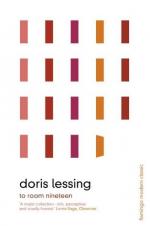|
This section contains 1,595 words (approx. 4 pages at 400 words per page) |

|
Perkins is a professor of American and English literature and film. In this essay, Perkins examines the theme of self-knowledge in Lessing's short story.
D. H. Lawrence centered many of his novels and short stories on the difficulties inherent in what he called in his foreword to Women in Love "the passionate struggle into conscious being." Lawrence's work traces the chronological development of his characters' growing awareness of themselves and their relation to their world. He also explores the antithetical forces that can impede an individual's quest for self-knowledge.
Lawrence believed that we gain knowledge of ourselves through two contradictory processes: our minds (what he called "mental consciousness") as well as our physical selves (our "blood-consciousness"). He explains in his December 8, 1915, letter to Bertrand Russell that the blood-consciousness "exists in us independently of the ordinary mental consciousness." Lawrence writes:
And the tragedy of this our life, and...
|
This section contains 1,595 words (approx. 4 pages at 400 words per page) |

|




